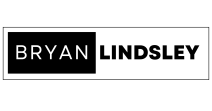As we approach the end of another tumultuous year, I feel the tension between dread and hope.
Looking back on last year, I dwell on our persistent and growing challenges:
Increase in childhood poverty, growing homelessness, and a rise in car jackings, to name just a few pressing issues.
Sometimes it gives me a sense of futility.
Conventional problem-solving approaches aren’t working.
And that’s despite innovative approaches fueled by multi-billion dollar investments.
The harder people push, to reference one of Peter Senge’s laws of systems thinking, the harder the system pushes back.
Another way Senge puts it is that “the more effort you expend trying to improve matters, the more effort seems to be required.”
It’s a good summary of last year for many.
So today, let’s think about taking a different approach next year.
‘I commit to working harder…’
I should know better, but general lack of progress leads me – as it does every year – to plan on being more productive.
Armed with new metrics, strategic plans, and meticulously crafted to-do lists, I commit to working with more clients, teaching more complex problem solving methods, and distributing more systems thinking tools.
I can muster more willpower and determination, right?
But in quiet moments of meditation, I try to remind myself that conventional productivity advice is a myth.
The illusion is that if we organize our time well enough, we will reach the finish line—a place where our problems are neatly solved.
Yet each year, I’m disappointed again.
After about two decades in the social sector, I can see that some problems refuse to yield, persisting not just into the next year…but potentially spanning the rest of my lifetime.
Perhaps our ceaseless busyness is just a defense mechanism, shielding us from the personal toll of acknowledging that some problems may never be truly solved.
But here’s the paradox I’ve discovered:
Sitting with the disappointment and pain of this tragic realization – instead of distracting myself with more meetings and productivity hacks – can be transformative.
It shapes the lens through which I view the impending year.
Instead of merely plunging into another whirlwind of activities, perhaps 2024 could be less productive, but more impactful.
Here’s how I’m thinking about it…
Appreciating the problem solving journey
Before charting an alternative course for the work that lies ahead, let’s begin with a radical act—gratitude.
Gratitude not just for the positive outcomes we contributed to last year (and I’m sure there were many), but for the community that surrounds us — the individuals who stand shoulder to shoulder with us on a variety of problem solving challenges.
I’m personally grateful for my coaching and consulting clients, whose slow and steady beat of progress is frequently overlooked.
Their stories don’t often get recognition because they’re not in response to front-page emergencies, nor are the results overnight miracles.
Yet, their incremental successes are the backbone of meaningful change—the relentless pursuit of progress, one strategic move at a time.
I’m profoundly grateful for their tireless and unheralded efforts.
Their work reminds me that I’m not alone.
That I’m not the only one questioning whether the highest aspirations and superhuman effort next year will yield a different result.
And together – on virtual calls and during in-person meetings – we can agree that in the realm of complex problems, the notion of making progress alone is nothing short of a fallacy.
We have to acknowledge that collaboration is not just beneficial; it’s imperative.
We need each other.
Solving the group
And crucially, I try to remind myself that this collaborative effort extends beyond the comfort of like-minded colleagues.
The true challenge – especially in our polarized times – lies in building connections with those who vehemently disagree with us.
As we move into the coming year, let’s recognize that one of the most impactful endeavors might be cultivating relationships with those in our communities who challenge our perspectives.
It’s a recognition that solving complex problems is not just about addressing the issues themselves…
It’s about understanding and solving the dynamics of the groups grappling with them.
So, amidst your list of problem solving ambitions for next year, take a moment to listen to the subtle whisper of what types of relationships are most needed in your local community.
I guarantee that developing relationships with those “one the other side” will yield more impact than buying a new daily planner or getting your email inbox to zero.
May the conclusion of your year be filled with good tidings and cheer, and I look forward to crossing paths with you next year.
==
Whenever you’re ready, there are two ways I can help you:
→ I’m a strategic advisor for the toughest societal problems like poverty, crime and homelessness. People come to me when they want to stop spinning their wheels and get transformative, systems-level change.
→ I’m a coach for emerging and executive leaders in the social and public sectors who want to make progress on their biggest goals and challenges.
Let’s find out how I can help you become transformational.



